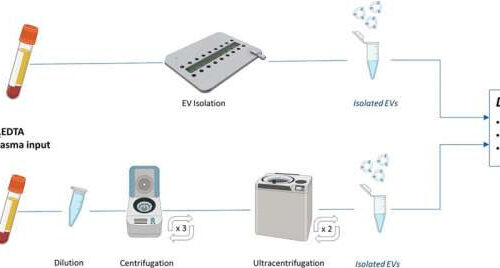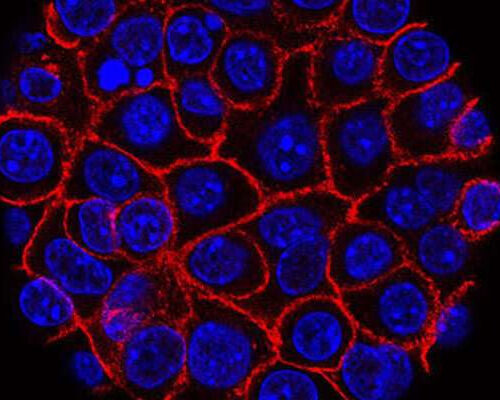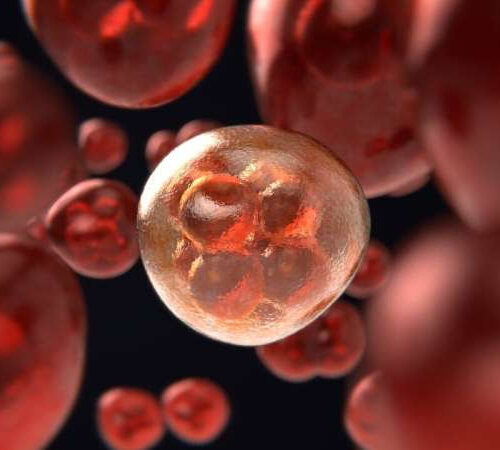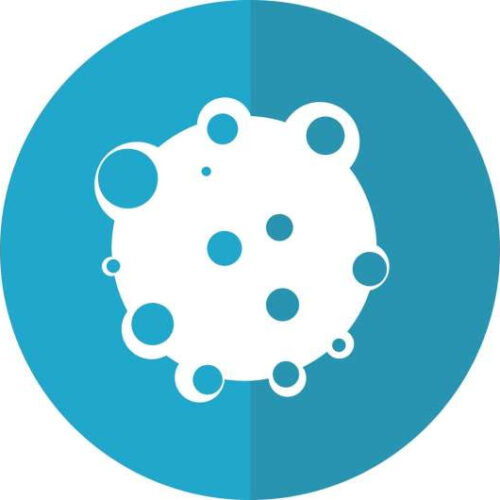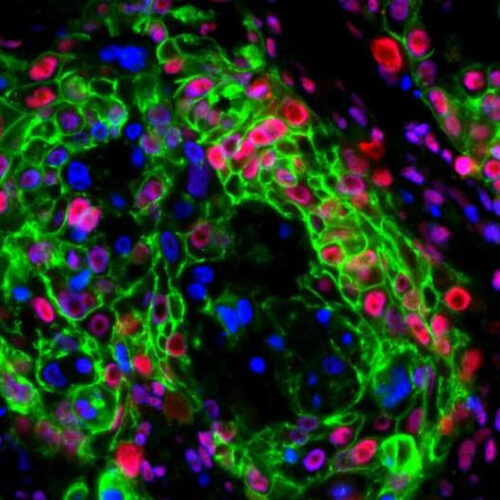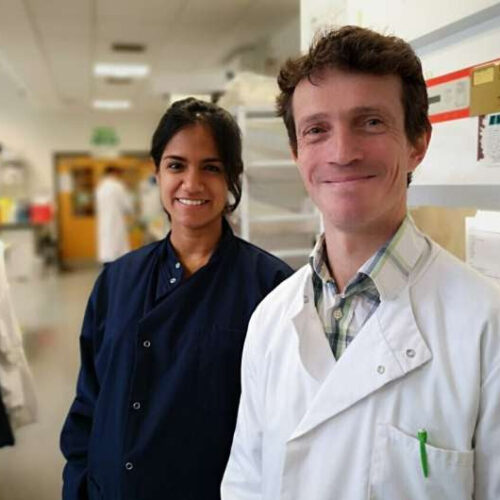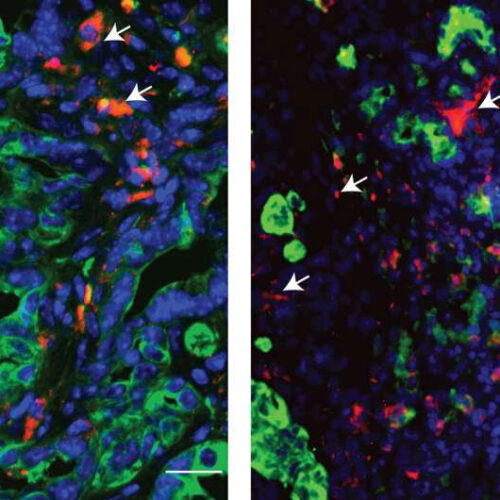by University of California – San Diego EV isolation workflows using either Verita™ or ultracentrifugation methods. Credit: Communications Medicine (2022). DOI: 10.1038/s43856-022-00088-6 A novel screening platform has flagged more than 95% of stage 1 cancers, according to a pilot study published in Nature Communications Medicine. If validated by future studies, the approach offers a new way to detect...
Tag: <span>Pancreatic cancer</span>
TGen, HonorHealth and Irish biomedical firm initiate promising ‘Nieto’ clinical trial against pancreatic cancer
THE TRANSLATIONAL GENOMICS RESEARCH INSTITUTE SCOTTSDALE, Ariz. — March 18, 2022 — The Translational Genomics Research Institute (TGen), an affiliate of City of Hope, in association with HonorHealth Research and Innovation Institute and Systems Biology Ireland (SBI), have begun a clinical trial, testing the combination of two drugs against advanced pancreatic cancer, one of the most deadly and difficult-to-treat malignancies. The...
Distinct gut microbial profile may identify pancreatic cancer, irrespective of stage
by British Medical Journal Pancreatic cancer cells (blue) growing as a sphere encased in membranes (red). Credit: National Cancer Institute A specific panel of gut microbes may identify pancreatic cancer, irrespective of how far the disease has progressed, suggests research published online in the journal Gut. The findings offer hope of a new non-invasive method of...
Scientists discover molecule that kills pancreatic cancer cells
by Roswell Park Comprehensive Cancer Center Credit: Pixabay/CC0 Public Domain A research team led by scientists at Roswell Park Comprehensive Cancer Center has discovered a molecule that inhibits the growth and metastasis of pancreatic cancer cells through the iron metabolism pathway. Their findings, recently published in Molecular Cancer Therapeutics, pave the way toward the development of...
Pancreatic cancer: Cellular process suggests path to new treatment options
by Charité – Universitätsmedizin Berlin Credit: Pixabay/CC0 Public Domain Drug resistance is a major obstacle in the treatment of cancers. In an aggressive type of pancreatic cancer, for instance, drug resistance is associated with the suppression of programmed cell death, which results in the uncontrolled growth of cancer cells. Until recently, the process underlying this...
Could common blood pressure meds help curb pancreatic cancer?
Pancreatic cancer is notoriously difficult to treat and beat, but new research suggests that commonly prescribed high blood pressure drugs may boost survival in patients. Known as angiotensin-converting enzyme inhibitors (ACE inhibitors) and angiotensin receptor blockers (ARBs), those who took them saw slight bumps in survival. Folks with pancreatic cancer who took an ARB had a 20% lower risk...
Lab results show promise for future pancreatic cancer treatment
by University of Illinois at Chicago Image of the human PDAC slice culture that was used to determine the efficacy of the XP-524. Credit: University of Illinois at Chicago University of Illinois Chicago researchers have developed a compound that may one day offer hope for pancreatic cancer treatment. A pre-clinical study of the experimental compound...
Pancreatic cancer cells feed off hyaluronic acid
Often found in beauty products and wellness supplements, hyaluronic acid attracts and retains water well. It’s also a major player in the physiology of pancreatic tumors. Hyaluronic acid, or HA, is a known presence in pancreatic tumors, but a new study from researchers at the University of Michigan Health Rogel Cancer Center shows that hyaluronic acid also acts...
How targeting healthy cells could help develop treatments for pancreatic cancer
by Worldwide Cancer Research Dr Angus Cameron & Dr Shinelle Menzes at Barts Cancer Institute. Credit: Please credit: Worldwide Cancer Research Researchers at Barts Cancer Institute at Queen Mary University of London, supported by a partnership between the UK charities Worldwide Cancer Research and Pancreatic Cancer Research Fund, have made a discovery that reveals new...
Drug compound makes pancreatic cancer cells more vulnerable to chemo
by Washington University School of Medicine Researchers at Washington University School of Medicine in St. Louis have identified a drug compound that makes pancreatic cancer cells more vulnerable to chemotherapy. While chemotherapy alone (left panel) can cause some degree of pancreatic cancer cell death, the addition of the compound ATI-450 enhances the effect of chemotherapy...

